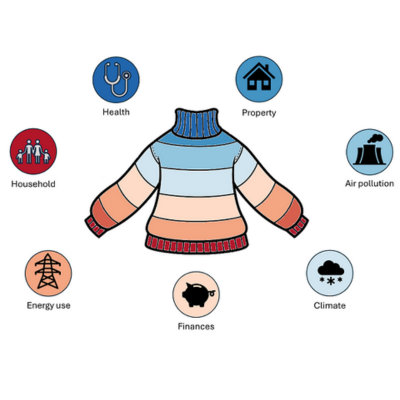Since 2017, UrbanTide has been providing open data training to public bodies across Ireland.
In May 2019, the European Union's Open Data and Re-use of Public Sector Information Directive (PSI Directive) was updated, and the new version became enforceable in July 2021. The updated directive aims to promote transparency, stimulate innovation and economic growth, and make more public sector information available for reuse.
Under the new Open Data Directive, public sector bodies are legally required to make certain information available for reuse, including documents, data, and databases, in machine-readable formats. Access charges must also be reasonable and non-discriminatory. The directive encourages the development of common standards and best practices for open data and using open licenses to facilitate reuse.
As a result, UrbanTide's open data training has become increasingly crucial. Public sector bodies must know their legal obligations and learn how to implement them effectively to improve transparency and promote innovation while complying with the new Open Data Directive.

What is the Open Data Directive?
The Open Data Directive (ODD) is the legal framework for reusing data generated by public sector bodies. Formerly known as the Public Sector Information Directive (PSI Directive), it sets regulations that impact how public organisations in the European Union are expected to manage and share their data. The ODD aims to ensure transparency and fair competition in the use of public data by demanding that all data be publicly available, reusable, and up-to-date. It also requires organisations to introduce APIs where possible to facilitate access to their open data.
The regulations were renamed and expanded in 2019 to keep up with the technological advancements in data technologies, such as the Internet of Things and Artificial Intelligence. The update aims to ensure that countries fully exploit the potential benefits of sharing public sector data and that organisations evolve to meet changing technological needs. In summary, the ODD plays a crucial role in promoting transparency, innovation, and growth while ensuring that public sector data is managed and shared appropriately.
Which organisations must comply with the Open Data Directive?
Since 2021, all public bodies that deal with data are legally obliged to open up their data under the ODD. However, there’s a strong emphasis on those organisations that deal with High-Value Datasets (HVD). High-Value Datasets are those datasets that have social and economic benefits. What qualifies as HVD has now been clearly listed and includes the following types of data:
- Geospatial data
- Earth observational and environmental data
- Meteorological data
- Statistics
- Data on companies and company ownership
- Mobility data.
Link to the detailed list of specific High-Value Datasets (HVD) and the arrangements for their publication and reuse.
What are the potential consequences of non-compliance?
Failure to comply with the Open Data Directive can have various consequences, including:
- Legal consequences: Member states that fail to comply with the Open Data Directive may face legal consequences, including fines and legal action brought by the European Commission.
- Loss of funding: The European Commission may also withhold funding from member states that do not comply with the Open Data Directive.
- Reduced transparency: Failure to comply with the Open Data Directive can also lead to reduced transparency and accountability in the public sector, as key information may not be made available to the public.
- Missed opportunities: Not adhering to the Open Data Directive can result in missed opportunities for innovation, economic growth, and social benefits that can arise from the reuse of public sector information.
Overall, failure to comply with the Open Data Directive can have significant negative consequences for member states, including legal and financial penalties, reduced transparency, and missed opportunities for innovation and economic growth.
Public data requesters can appeal to the Information Commissioner if they are unsatisfied with the response they receive to their data request. The Information Commissioner will assess these on a case-by-case basis.
Link to the European legislation on open data, which provides further details and
UrbanTide can help guide and train your organisation
UrbanTide is helping to build an open, transparent and accountable public governance in Ireland. By enabling public sector bodies to open up their data, promoting transparency, building trust and empowering citizens. Don't miss out on the benefits of open data – If you're a public sector organisation in Ireland that deals with any kind of data, UrbanTide is here to assist you.
We offer a range of open data training programs designed to help your organisation create an action plan and achieve compliance with the Open Data Directive and support your open data journey.

Links






